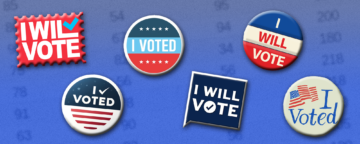A special February 2024 issue of the journal Nicotine & Tobacco Research, co-edited by Annenberg Public Policy Center research director Dan Romer, showcases new research on understanding the use of social media to promote tobacco products to young people and influence their tobacco use.
While the use of traditional cigarettes has declined considerably among young people, the tobacco industry has unveiled new products that are promoted as less harmful than cigarettes and that could help those who are addicted to cigarettes reduce their risk. However, these newer products are not harmless and with the potential for addiction, can also lead to long-term effects on health.
While the 1998 Master Settlement Agreement curtailed the advertising and promotion of tobacco products on the major media of the day, social media have become a fertile vehicle to promote these products, especially for young people who have traditionally been the target for tobacco promotion. The most well-known and successful example is the emergence of vaping products that do not require the inhalation of tobacco smoke. Recent surveys indicate that over 40% of 17- and 18-year-olds have tried one or more of those products. Other new products include tobacco pouches that are smokeless but may also cause harmful effects on health. While major social media platforms claim to restrict the promotion of tobacco products, there are many ways that promotion can nevertheless appear on those sites, especially through the use of influencers.
The special issue examines some of the effects of influencers on young people’s initiation of novel tobacco products, ways to counteract tobacco promotion, and ways to use machine learning and sophisticated computer vision models to track content on social media that draws the most attention. The issue ends with a discussion of ethical concerns that social media researchers need to consider, as well as an appeal to social media platforms to make their data available for analysis by public health researchers. The long-term goal is to enable the Food and Drug Administration to more effectively control the promotion of tobacco products on digital media.
For an overview of the special issue, see the article “Advances in Social Media Research to Reduce Tobacco Use” by Grace Kong, Ph.D., Kelly D. Blake, Sc.D., and Dan Romer, Ph.D. Kong is at the Department of Psychiatry, Yale School of Medicine; Blake is with the Behavioral Research Program, Division of Cancer Control and Population Sciences, National Cancer Institute; and Romer is research director, Annenberg Public Policy Center of the University of Pennsylvania.
All three co-edited the special issue, which was sponsored by the National Institute on Drug Abuse and the National Cancer Institute’s Division of Cancer Control and Population Sciences, Behavioral Research Program.

